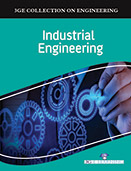Engineering and Technology

Over the past few decades, many industrial areas along with management hypotheses have been transformed. Mass customization, global value networks, enhanced innovation and product development cycles, new business models, as well as new competitive factors. Industrial engineers traditionally focus on process improvement, production planning and control, operations research and simulation, statistics and quality control, facility layout and project management and systems engineering. Industrial Revolution was the starting point for the birth and initial development of industrial engineering profession. The studies of Fredrick Taylor, who is sometimes called as the father of IE, together with other pioneers like Henry Gant, Frank and Lillian Gilbreth, and Henri Fayol made the initial building blocks of Industrial Engineering. World War II was another milestone in IE history. The increasing needs of manufacturers for higher efficiency in production systems led to creating new methods like time study, methods engineering, operations research, and quality control. The enhancement of computers made an opportunity for industrial engineers to improve the effectiveness of IE techniques by applying the technology for industrial engineering problems such as simulation, machining process control, linear and non-linear models, management information systems, layout planning, and statistical quality control. Development of information technology has opened a new vision for industrial engineers in recent years.
This book unveiled the coverage of industrial engineering concepts and applications required to improve design processes, continuously improving the industrial operations. Industrial engineering has played an important role in the development and optimization of different systems at macro and micro levels. Design and development of teamwork in the entire company is the crucial competence of industrial engineers for the future. Not only the classical autonomous teams in production or logistics oriented on performance and productivity, but also the creative teams of strong individuals, focused on innovations ability, will be important. The other important task is build multi-cultural teams in the global production networks. Work analysis and measurement is the traditional competence of industrial engineers. New opportunities of this discipline are in logistics, distribution, office and product and process development. Industrial engineers will penetrate from production departments to other company areas. There are many new application fields for traditional IE methods e.g. 5S in information systems, simulation and value stream management of supply chain networks, simplification and streamlining of management processes waste in meetings, reporting, etc. This novel edition is packed with information on principles, strategies, models, techniques, methodologies and applications of industrial engineering. This volume serves as beneficial guide for undergraduate students studying Industrial Engineering; discusses various concepts and provides real world information related to the area of Industrial Engineering and Management.